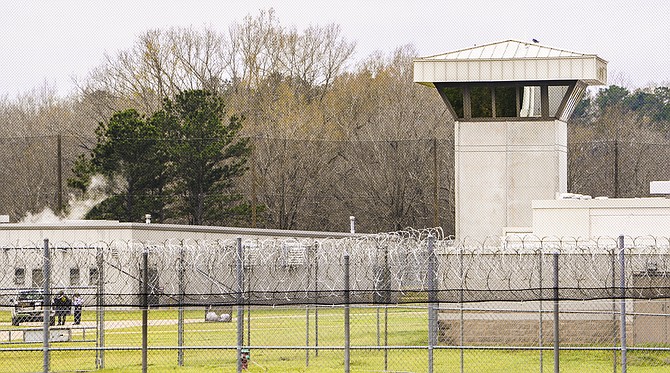
Jamaican Christine Case, 40, died on Sunday at Yarl’s Wood. Nothing to be seen here; move along; just another Jamaican woman in Yarl’s Wood. “One more dead body behind the walls of Britain’s detention centres.” One more dead woman. That’s all.
Officially Christine Case died of a massive pulmonary thromboembolism, but fellow prisoners tell a different story. They say Christine Case was denied medical assistance. It’s also been claimed that local National Health Service doctors who offered assistance to distressed prisoners after Case’s death were turned away.
Serco runs Yarl’s Wood. Serco claims they have “24-hour, seven-day urgent medical cover on site at Yarl’s Wood.” And yet … Christine Case is dead.
Some say Christine Case called for help, as she was feeling severe chest pains, and that the `care’ she received was paracetamol, a mild analgesic for minor aches and pains. Not for severe pains, and especially not for severe chest pains.
Emma Mlotshwa, of Medical Justice, noted: “We are shocked but not surprised to hear of this tragic death. Any death in immigration detention is avoidable as immigration detention is optional. Our volunteer independent doctors have seen an alarming number of incidents of medical mistreatment. The only thing we are surprised about is that there have not been more deaths.”
People have questions. The immigration minister promises, yet again, yet another investigation.
Meanwhile, Yarl’s Wood is in lockdown. Yarl’s Wood is a house of women’s fear and women’s mourning … and women’s solidarity.
Four years ago, almost to the day, women prisoners, asylum seekers all, at Yarl’s Wood organized a massive hunger strike. 35-year-old Jamaican asylum seeker Denise McNeil was identified as a `ringleader’, moved to another prison, and placed in solitary. The Yarl’s Wood women hunger strikers took the calculus of violence and turned it on its head. They said they are better than that, they are women, fighters used to fighting, peacemakers used to making peace, and no one decides that it is right for them to be slaughtered.
The world paid attention … for a minute.
Twenty-one years ago immigration officers killed Jamaican Joy Gardner, 40, as her five-year-old son and her mother watched. What has changed since then? The killing now takes place behind walls and bars.
For some, the handling of women asylum seekers at Yarl’s Wood `puts the UK to shame.’ It does, but it does more than that. It shames the world, where this is the allotted fate for far, far too many women. Black women. Immigrant women. Women. A woman died that night.
(Photo Credit: Handout / BBC)





